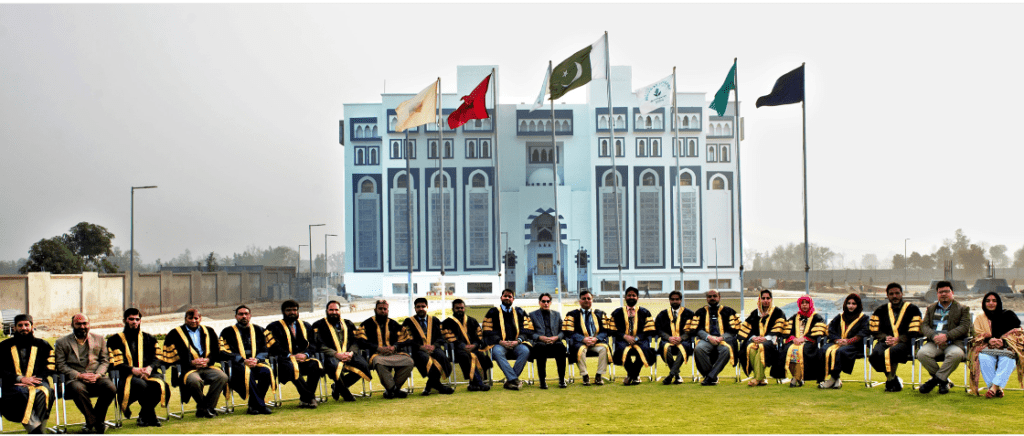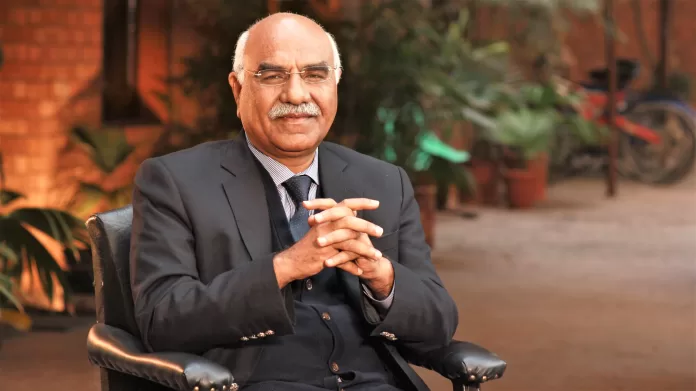When he learnt about his nomination for the Nobel Peace Prize for 2022, Dr. Amjad Saqib said he had never been motivated by awards, but hoped the news could present a good image of his country. Humble to the core, Dr. Amjad Saqib is a renowned philanthropist and the founder of Akhuwat Islamic Microfinance (AIM), Pakistan’s largest interest-free microfinance programme. He was nominated for the 2022 Nobel Peace Prize for his humanitarian work in poverty alleviation. The founder of Pakistan’s largest interest-free microfinance organization, Dr. Saqib is among 251 individuals and 92 organizations announced in April 2022 as candidates for the annual prize that comes with a medal, a diploma, 10 million Swedish crowns ($1 million), and immediate global attention. In an interview at that time Dr. Saqib commented, “It is a good news in this sense that this nomination will bring good name to my country and present a good image of Pakistan to the outer world.” The peace prize is one of five separate prizes funded by Swedish industrialist Alfred Nobel that, according to his will of 1895, are awarded to those who “have conferred the greatest benefit to Mankind.” The other four awards are in the fields of physics, chemistry, medicine, and literature. Enjoying recognition all over the world for his work in social mobilization and poverty alleviation Dr. Amjad Saqib was also one of five recipients of the Ramon Magsaysay Award in 2021, (popularly known as Asia’s Nobel Prize) which is named after a Filipino president who died in a plane crash, for his “first-of-its-kind” interest-and collateral-free microfinance programme, which has helped millions of poor families. As the DJ goes into print the entire Pakistan nation is proud that Dr Amjad Saqib has been nominated for the Nobel Peace Prize. That is most deserving! It will be a great honour for Pakistan when he wins the Nobel Peace Prize 2024.
Amjad Saqib left his job in Pakistan’s civil service to establish Akhuwat in 2001. Since its inception, the organization has opened 800 branches across Pakistan, enabling hundreds of thousands of people to become self-reliant. “We created this interest-free loan fund in which wealthy people would contribute and the institution (Akhuwat) would distribute it to needy people but without any interest so that they can start a small business,” he said, adding that the first loan was given to a lady who purchased two sewing machines to start her business. Akhuwat was set up as a Company under “Section 42 of the Companies Ordinance 1984” with the objective of providing interest-free microfinance to impoverished and underprivileged members of society with the ultimate aim of enhancing their standards of living, it has grown by leaps and bounds. Drawing on the principles of justice and brotherhood AIM strives to alleviate poverty creating a system based on mutual support in society. As of now the charity has disbursed more than 5.4 interest free loans amounting
to Pak Rupees 180 billion, helping more than 3 million families across Pakistan. And what is most surprising but perhaps not so much, AIM retains a recovery rate of 99.9 percent. Operational costs are covered by donations that come mostly from Pakistani citizens. While working in the civil service Amjad Saqib got the opportunity of working for a poverty alleviation programme and it was there that he learnt much about microfinance. Other than the experiences he acquired, he came away with two interesting observations. Firstly, people were very reluctant to take loans with built-in interest as it is forbidden in the religion. While every religion is against usury or charging interest on loans and though people did not like interest-based lending, yet they had no other option and hence, they had to participate in this form of borrowing. The second observation that really disturbed him was the exorbitantly high rates of interest being charged from the poor. For example, if a rich person wanted to buy a luxury item, he could get a loan at 12% or perhaps 15%. But if a poor person needed a loan, it was more than likely that he would be given that at 30 to 40% rate of interest. From a secular point of view, this becomes a question of gross inequity. These were the two observations that prompted Dr. Amjad Saqib to try to resolve or find a solution to the issue of high interest on small loans. This also propelled him to critically examine the social, moral, and cultural values of society that allow such forms of usury. When he gave the very first interest-free loan of Rs. 10,000 to a widow he was pleasantly surprised when she returned the entire amount after six months. The lady had made very good use of the funds and in a span of mere six months she was able to improve the lives of her children and other members of her family and was able also to marry off one of her daughters. That was the beginning of this organization which was named Akhuwat. The entire program is founded on the concept of “Akhuwat,” which in Arabic means brotherhood and is borrowed from the tradition of the Holy Prophet (Peace Be Upon Him), who said that the best way to end poverty is not through charity but through sacrifice and adoption. He suggested that a wealthy person should adopt a poor person and help that person. To be more precise, a wealthy person should enter into a relationship of brotherhood with a poor person and then help that person through a bond of association instead of giving dissociated charity. Not surprisingly, Dr. Amjad Saqib is a firm
believer that poverty cannot be eliminated through charity and that it requires a bond of brotherhood between the “haves” and the “have not’s”. This is the notion of brotherhood that links a wealthy person to an underprivileged person and it is derived from the teaching of the Qur’an. This is the philosophy behind Akhuwat.
More than two decades after its launch, Akhuwat has grown to become the nation’s largest microfinance institution, distributing the equivalent of US$900 million and boasting an almost 100 per cent loan repayment rate. Dr Amjad was cited for “his inspiring belief that human goodness and solidarity will find ways to eradicate poverty.” Having graduated from King Edward Medical University, he started his career by joining the esteemed civil service of Pakistan in 1985. He served for seven years at various high-level government positions including in the Punjab Rural Support Programme (PRSP), a rural development and microfinance initiative by Government of Punjab. The programme aimed at social mobilisation, community organisation and provision of financial access to the poor and this is where the idea about forming Akhuwat took shape. No society can prosper unless the fundamental right of education if granted to all its citizens. Akhuwat’s vision of creating a poverty-free society would remain incomplete unless the root cause, illiteracy of the poor, was addressed. Considering the paramount importance of education, an investment in education was sorely needed for a number of reasons i.e. understanding others, creating opportunities, and building a tolerant and compassionate society. Thus Akhuwat embarked on its mission to provide free of cost, high quality education through its intervention in primary, secondary and higher education.Through the public school support programme Akhuwat has collaborated with the government of Punjab to restore more than 4000 non-functioning schools. It has adopted over 350 public primary schools in six districts where it provides quality education and is also working on improving academic facilities. In Sindh the Narain Jagannath Vaidya (NJV) School was the first public school established in 1855 but had soon became a neglected site losing its place as a center of education excellence. Since 1985, partnering with the Government of Sindh, Akhuwat started restoring this historic building and today NJV has reclaimed its position as a site for educational and holistic training for its students.

Akhuwat College established in 2015 is the first residential college that houses and educates bright young people who are selected on merit from all corners of Pakistan, catering to students from low income households who despite their talent and desire are unable to do so because of financial constraints. The aim of this college is not only to provide them with quality education but to cultivate their unique talents, inspire a deeper sense of ethics and inculcate in them the values of discipline, hard work and volunteerism in students. Currently under-construction, Akhuwat University will be Pakistan’s first fee-free university where students will pay their fees according to their means. Through a range of financial instruments, including scholarships and interest-free loans, Akhuwat will
ensure equal access to quality education to all eligible students. The University embodies Akhuwat’s long-term vision of development and prosperity by preparing a new generation of leaders that will transform their communities and country. Apart from the core project of providing loans, several welfare schemes are also being run at the present under the supervision of Dr. Amjad Saqib, the founder and executive director of Akhuwat. These include Akhuwat Cloth Bank, Akhuwat Health Services, Akhuwat Dreams Project, Akhuwat Education Assistance Program and Akhuwat Free University, as well as a plan for the welfare and care of eunuchs. It is said that a goal without a plan is just a dream. All too often, some people talk about what they hope to achieve, while others put a plan of
action in place to systematically work to achieve their goal. It is the difference between being a dreamer and high achiever; between imagining and talking about what could be versus working to make it happen. Dr. Amjad Saqib not only realized his own dreams, he was one of the few who had the courage to fulfill the dreams of others and he continues to do so even today, bringing into their lives, happiness and prosperity.




